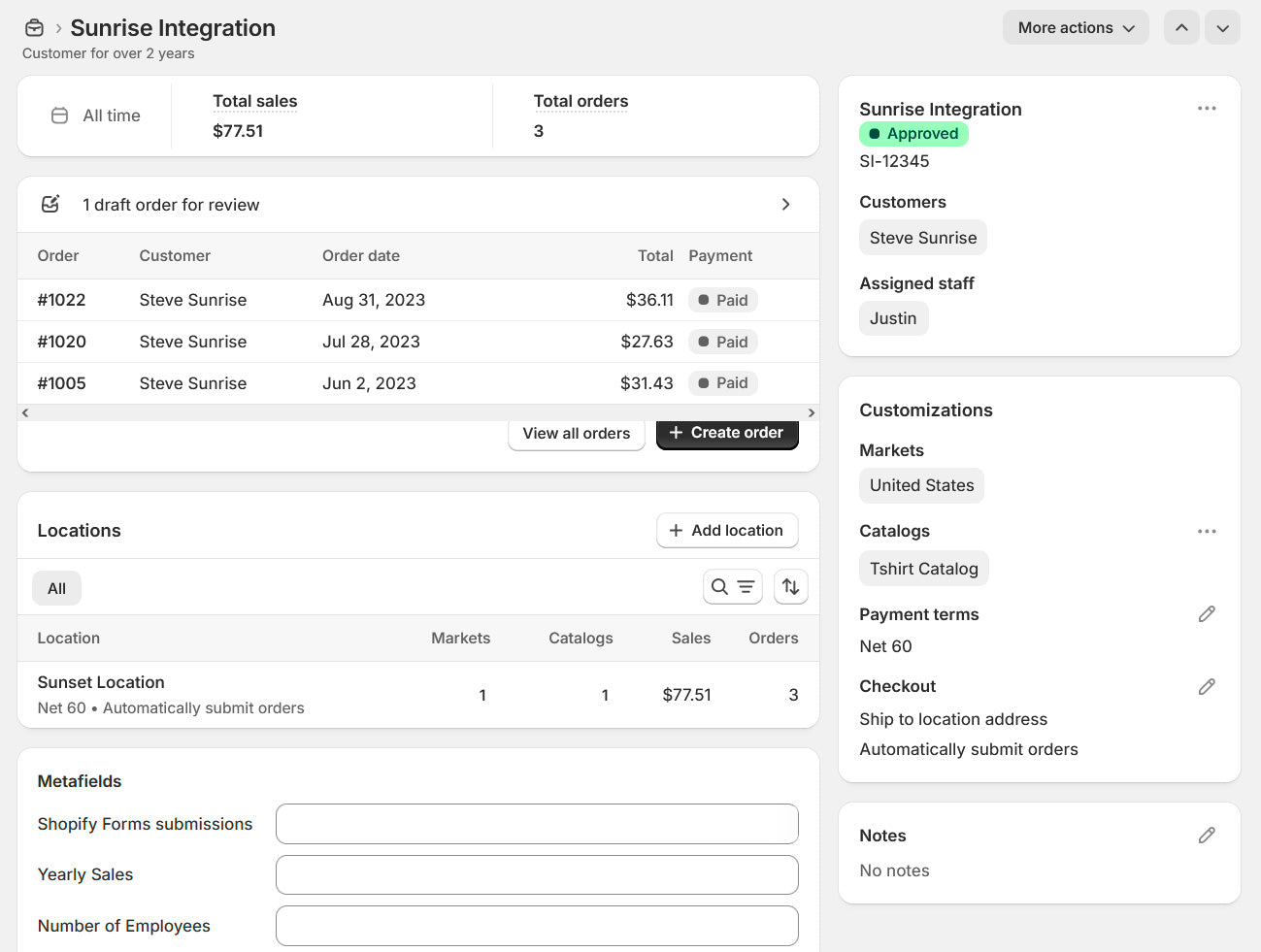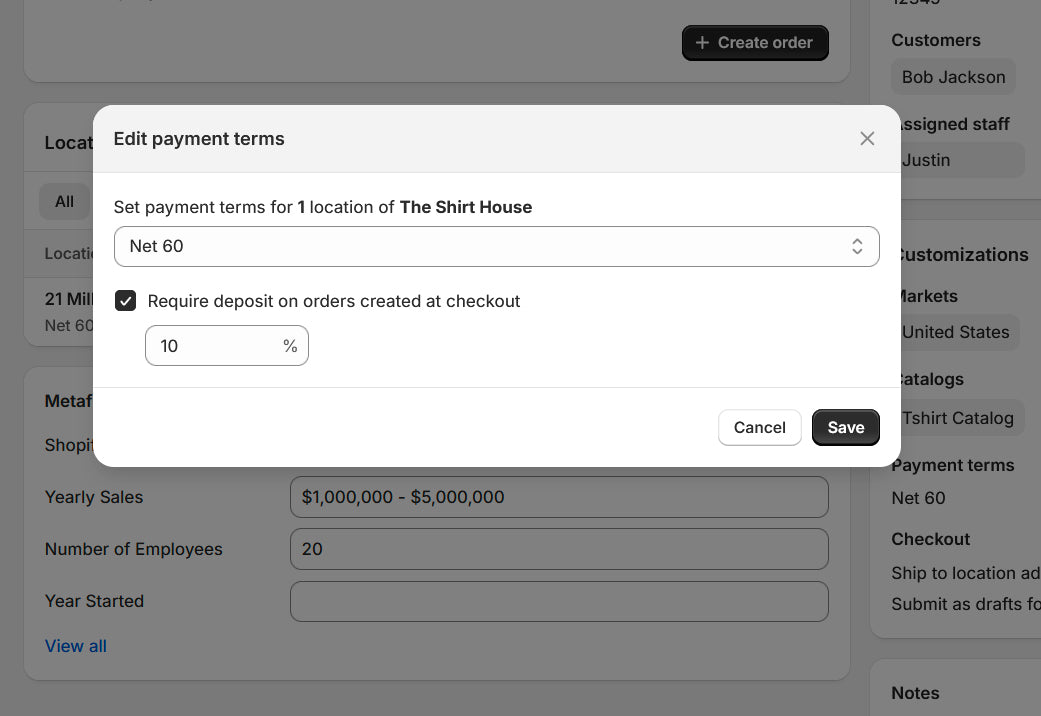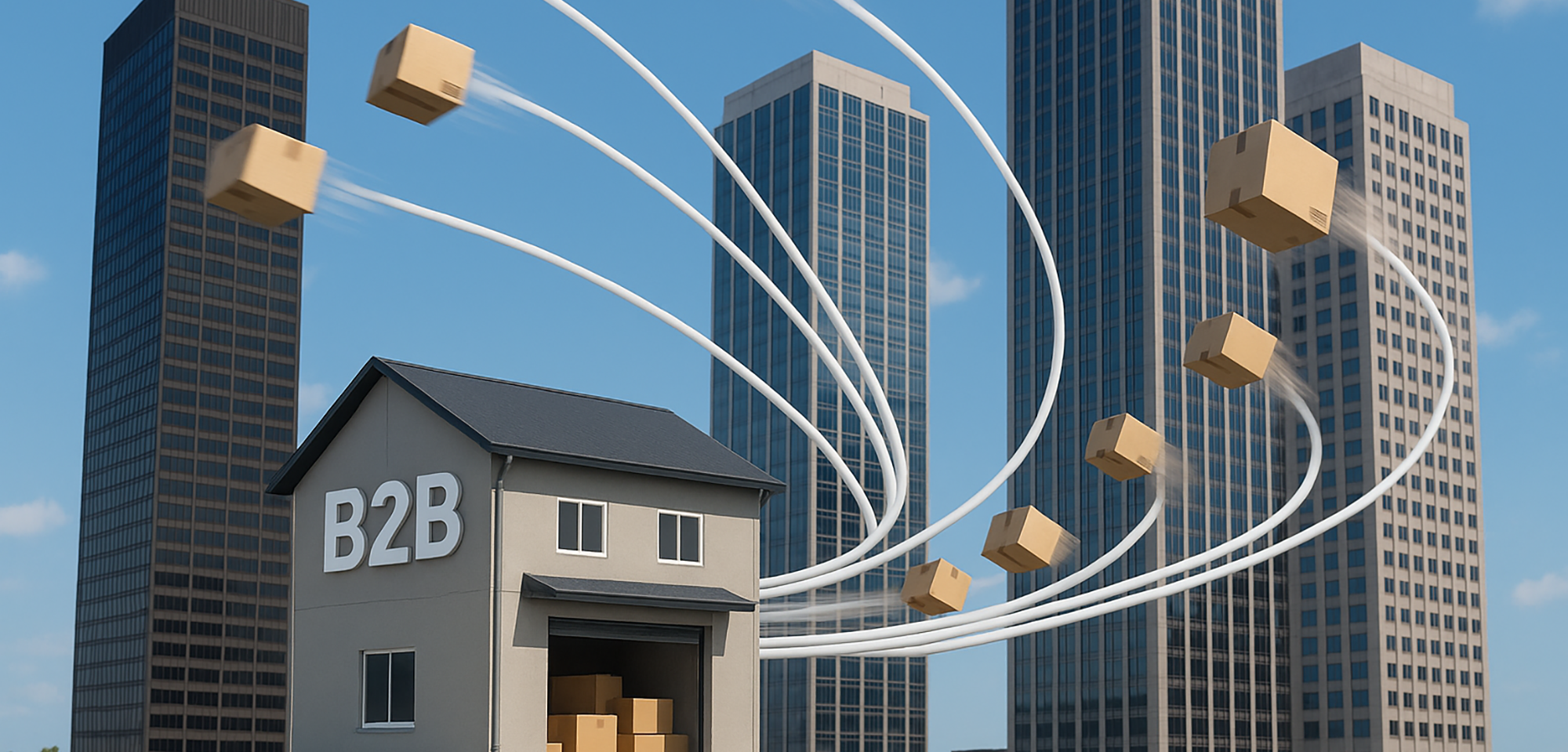Shopify Strategies for B2B Success

The B2B market is growing fast and Forrester Research predicts U.S. B2B ecommerce will reach $3 trillion by 2027. That growth represents a massive opportunity but only if you position your business to take advantage of it. B2B revenue is shifting and buyers who once relied on phone calls, faxes, or trade shows are now moving to online transactions. If you want to capture your share of this growth, you need to think differently about how you sell.
Selling to other businesses is not the same as selling directly to consumers. B2B buyers shop strategically. They often buy in bulk, expect specialized pricing structures and rely on payment terms. These expectations create a different sales environment than B2C. If you try to serve wholesale buyers with the same store setup you use for retail customers, you’ll run into frustrations. That’s why you need a platform that supports the complexity of B2B while still giving you the flexibility to grow.
When it comes time to consider a B2B commerce platform, Shopify leads the pack with a solid B2B foundation. Shopify Plus provides the capabilities you need for business buyers including company profiles, unique price lists, bulk orders, and payment terms. Let’s review some strategies for building B2B success with Shopify Plus. You’ll see how Plus gives you the tools to simplify your B2B operations, improve customer experience and maximize profits.

Simplify B2B With A Unified Platform
A strong B2B platform shouldn’t force you to separate your wholesale and retail operations into disconnected systems. Running multiple platforms often means duplicate work, inconsistent data, and added complexity. Ideally, you should be able to manage everything in one place. This kind of unified approach creates a single source of truth that keeps your operations efficient.
Shopify Plus supports this unified model by letting you manage both your B2B and D2C channels side by side. Instead of maintaining two different sets of products, orders, or integrations, you can streamline everything under one platform. By streamlining operations, you remove duplication, reduce errors, and create efficiency at every step of the process. You’re creating a foundation that lets you scale confidently, knowing your B2B and D2C channels are working together.
Provide a Personalized B2B Self-Service Portal
One of the most effective strategies for B2B success on Shopify Plus is giving your wholesale buyers the ability to help themselves. Business customers usually know what they need, and they want to order it quickly. You can create a self-service portal where buyers place bulk orders, reorder past purchases, and manage their own accounts. This not only makes the process faster and easier for them but also reduces the workload on your sales and support teams by eliminating repetitive manual tasks.
It's important to personalize the buying experience for each customer. B2B buyers want to log in and see their pricing, catalogs and terms in one place. Your strategy should an easy way for buyers to see their company profiles. This unified personalized approach creates stronger relationships and establishes your store as the most reliable way for buyers to place their orders.

Offer Payment Terms
One of the most important workflows in B2B ecommerce is how payments are handled. Unlike retail shoppers who pay upfront, business buyers typically expect payment terms. This is standard in wholesale because buyers need time to resell products. If you don’t support flexible terms, you risk losing large accounts to competitors who do.
Shopify B2B supports payment terms directly in your checkout. You can assign payment terms to specific customers and let them complete orders without immediate payment. You can even optionally require a deposit along with the terms. Shopify will automatically generate invoices and monitor outstanding balances.
This strategy opens the door to bigger opportunities. Large buyers and wholesale accounts often won’t work with suppliers who can’t provide terms, so to make your store competitive, you will need this type of flexibility.
Build Long-Term Relationships With Buyers
B2B is about relationships, not just one-time transactions. Business buyers aren’t looking for the lowest price on a single purchase, they’re looking for reliable suppliers they can trust for years. When you provide consistent service, deliver on time, and support the needs of your B2B buyers, you establish a foundation that translates into dedicated revenue. Business buyers often stick with the same vendor once they find a partner who meets their expectations. Instead of constantly chasing new customers, you can build deeper partnerships with existing accounts. This predictability allows you to plan inventory more effectively, stabilize operations, and invest confidently in growth.
It’s a smart strategy because retaining buyers is far less expensive than acquiring new ones. Research shows that improving customer retention by even a small percentage can significantly increase profitability. Your goal should be to maximize the lifetime value of every account you serve. Over time, this approach strengthens your business against market fluctuations and gives you a loyal base of customers who fuel sustainable growth.

Shopify Supports B2B
B2B ecommerce is a way to create stability and efficiency in your business. By building a Shopify wholesale channel, you can reduce reliance on one-time consumer sales and unlock recurring revenue from long-term business relationships. Instead of managing multiple systems or relying heavily on manual processes, you can create a unified approach where B2B and D2C run side by side, sharing inventory, customer insights, and reporting.
The real advantage of B2B is how it strengthens the foundation of your company. Wholesale buyers bring larger orders, more predictable purchasing cycles, and greater lifetime value. This allows you to reinvest in expansion and marketing, which helps your business grow. B2B creates an engine that helps you serve your buyers better and build a business that lasts.



